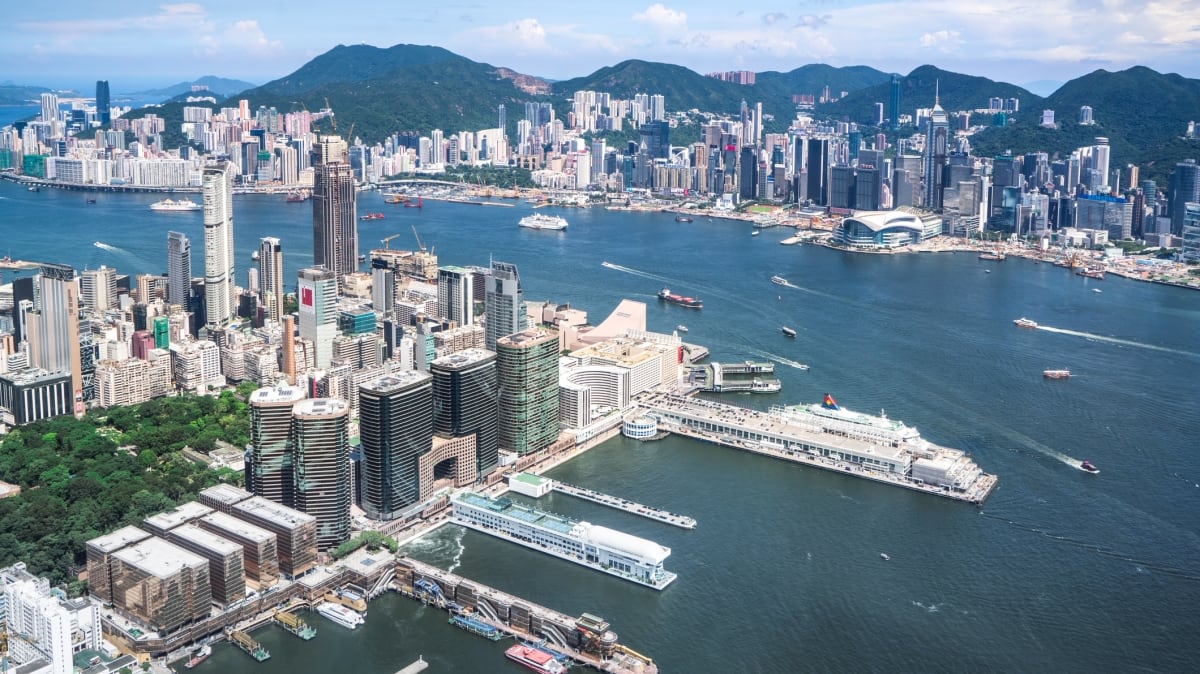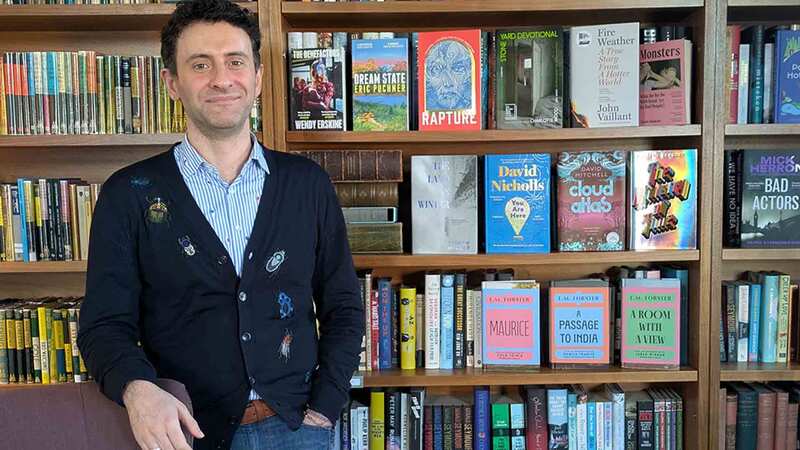You are viewing your 1 free article this month. Login to read more articles.
Hong Kong’s trade eyes uncertain future
The recent imposition of a new National Security Law in Hong Kong was followed by a crackdown on libraries. There are now signs that it is also affecting the work of publishers and booksellers.
Jo Lusby is co-founder of Pixie B Ltd, a consultancy and agency based in Hong Kong. She previously ran the Penguin Random House business in North Asia, and has lived in the region for the past 25 years.
It is probably fair to say that 2020 hasn’t gone to plan for anyone. In Hong Kong, the arrival of Covid-19 in January followed a difficult year in which mass protests and running battles between police and pro-democracy campaigners brought large parts of the city to a standstill.
Then on the eve of the 1st July public holiday to mark the handover of Hong Kong to China, a new National Security Law was ratified in Beijing, bypassing the usual process of legislative oversight in the city. Cargo ships emblazoned with five Chinese characters celebrating the enactment of the law were anchored in the iconic Victoria Harbour.
Hong Kong is governed by the Basic Law, which was enacted as part of the handover agreement of 1997. A de facto constitution, this rulebook occupies a place in the territory’s psyche not dissimilar to that of the US constitution—as a lodestar to guide the course for the population and the way of life. It included the guiding promise that “the previous capitalist system and way of life shall remain unchanged for 50 years”.
The new law granted sweeping powers against four new offences: secession, subversion, terrorism, and collusion with foreign forces to endanger national security. The crimes carry penalties of between three and 10 years imprisonment for “regular” cases; so-called “serious” cases can incur life imprisonment.
The repercussions were felt immediately. Pro-democracy groups including Joshua Wong’s Demosisto Party immediately disbanded, and some key leaders fled overseas. On 10th August, the offices of the pro-democracy tabloid Apple Daily were raided by hundreds of police officers, and owner Jimmy Lai was detained. The reality is that freedom of expression, as it has previously been understood, is no longer a present reality in Hong Kong. The shock on the ground is not that this has happened—just that it has arrived 27 years ahead of schedule.
The view on the ground
For publishers, booksellers and writers, the first sign of a new era was an announcement on 6th July instructing schools and universities to withdraw books that could possibly violate the new regulations from their libraries. The first works to vanish were titles by activist Joshua Wong and lawmaker Tanya Chan. From there, decisions became more complicated. Should books related to 2014’s Umbrella Revolution be held back? What about books exploring hot button topics unrelated to Hong Kong democracy that are barred on the Chinese mainland, such as the Communist Party, Xinjiang, Tibet and Taiwan? And how about George Orwell’s 1984?
Hong Kong is home to a vibrant and diverse literary and reading community. The annual Hong Kong Book Fair attracts almost a million visitors each year, and the city’s International Literary Festival will host more than 80 authors in this year’s 20th anniversary festival in November, held largely online because of Covid-19. “The literary scene has become much more interesting recently,” says Marysia Juszczakiewicz from Peony Literary Agency, who has run her agency in the city since 2006. “There have been some interesting voices coming through, in part because of the Literary Festival working hard on promotion over the past two decades.”
Tammy Lai-Ming Ho, author and president of PEN Hong Kong, describes the writing scene as “vibrant”, playing host to a variety of online panels and literary events throughout the Covid-19 shutdown. However, she says: “The implementation of the National Security Law in Hong Kong is something that one can’t pretend to ignore. I regard the new law with anger and annoyance, and of course, with trepidation.”
Writer Chan Koonchun, author of dystopian novel The Fat Years, takes a more sanguine view on the impact of the current situation. “The tendency is [that] Hong Kong is increasingly being mainlandised, but it is still China-lite,” he says. “The [Chinese] state made it known that they could be ruthless punishing writers and publishers for transgressions, yet a myriad of books were published because of huge market demand.”
For now, local publishers report a “hesitation”, in the words of Patrick Lim of Chinese language press RED Publishing, when commissioning works related to Hong Kong’s political and social identity. Some books have undergone significant edits, others have had words such as “protest” purged from their pages, while others have been cancelled entirely.
Many in the local publishing industry point to commercial rather than political factors determining the push and pull of their business, however. In March, Singapore-owned Popular Books closed its 16 bookstores in Hong Kong after 40 years of operation, citing the slump in the retail sector. Then, in July, Hong Kong’s oldest bookseller Swindon Books, founded in 1918, announced the closure of its remaining physical stores.
This has left Sino-United Publishing (known locally as SUP) as the biggest distributor and retailer in Hong Kong by a large margin, operating a number of publishing houses and three retail chains including The Commercial Press. And here’s the rub: SUP is owned and controlled by a company based in Guangzhou, southern China. This places more than half of Hong Kong’s bookshops under the direct control of a mainland Chinese company, creating a choke point for the mainstream retail of titles considered sensitive on the mainland.
A recent restructuring of SUP’s operations in Hong Kong has led to speculation that the territory may, at some time in the future, function under a structure of state-affiliated importers similar to that of China, where undesirable titles are filtered out at the border. For now, retailers have not reported difficulties in receiving orders.
For publishers such as Bao Pu, veteran founder of New Century Press, the implementation of the National Security Law merely formalises something that has been a present reality for a decade already. Starting in 2010, he says, China’s central government initiated a programme specifically targeting books from Hong Kong, seeking to thwart their journey to China. As a publisher of political histories and memoirs by senior Chinese political figures, New Century Press established what Bao describes as a “profitable niche”, selling to mainland visitors to Hong Kong.
As the new policies took effect, “sales started to decline 10%–20% per year,” he says, “until the Causeway Bay Booksellers kidnapping event [in December 2015]. Then, people began to see these kinds of books as dangerous items, and the publishing industry in Hong Kong reached an internal agreement that they will not touch books related to contemporary China.”
By June 2019, when Bao sought to publish a book marking the 30th anniversary of the Tiananmen Square Massacre, he couldn’t find a printer in Hong Kong willing to work with him, and he was forced to print in Taiwan, until that printer too got cold feet. New Century Press is now looking at digital options to keep its publishing programme going.
For now, says Bao Pu, the National Security Law is being applied narrowly, focused on what he describes as a “new genre of books related to a Hong Kong identity that rejects the mainland Chinese identity”. But that is not to say that it will not be applied more broadly in the future.
“I can already see the effect of the law on others,” says Tammy Lai-Ming Ho. “People put more thought into what they can or cannot write and say.” She adds that increasing numbers of contributors to journals that she edits elect to use pen names in their publishing.
This is echoed by a literary agent who represents some Hong Kong pro-democracy activists. “I am much more careful about how I approach authors and the correspondence involved”—although they have not yet turned down an author out of fear of reprisals.
The wider picture
For multinational publishers, Hong Kong has long been used as a crossroads. China’s established position as a manufacturing base, coupled with the ease of travel and commerce in and out of Hong Kong, has seen many use the city as a regional base to service the wider region. Most major and multinational publishers have a presence in the city, whether in the form of a regional headquarters or as the base for Asia regional sales reps.
None have thus far indicated an intention to pull out or even scale back their operations, although they are obviously keeping a close eye on the situation. “Our appetite for expanding and growing our Asian operation has not subsided or gone away,” says Christian Frederking, group sales director for Thames & Hudson, which employs 15 people in Hong Kong. “Hong Kong’s attraction lies in the fact that it is so close to south China, and specifically to Guangzhou where we have major importers generating significant sales. Therein lies the advantage. We keep an open mind: we are committed to our offices in HK, and its location is not currently in question.”
There is much talk of local publishers shifting across to the neighbouring Chinese-speaking territory of Taiwan, and the Causeway Bay Books operation has already opened in Taipei. For now, however, most people in the industry are maintaining a careful watch to see how things evolve. As one bookseller said, on condition of anonymity: “I didn’t get into this business to censor books on behalf of the Chinese government. So if that becomes our primary business, then we will get out.”
The apocryphal saying “May you live in interesting times” may be erroneously ascribed to having its origins in China, but for now, interesting times are most definitely what Hong Kong is experiencing.
Jo Lusby is co-founder of Pixie B Ltd, a consultancy and agency based in Hong Kong. She previously ran the Penguin Random House business in North Asia, and has lived in the region for the past 25 years.














